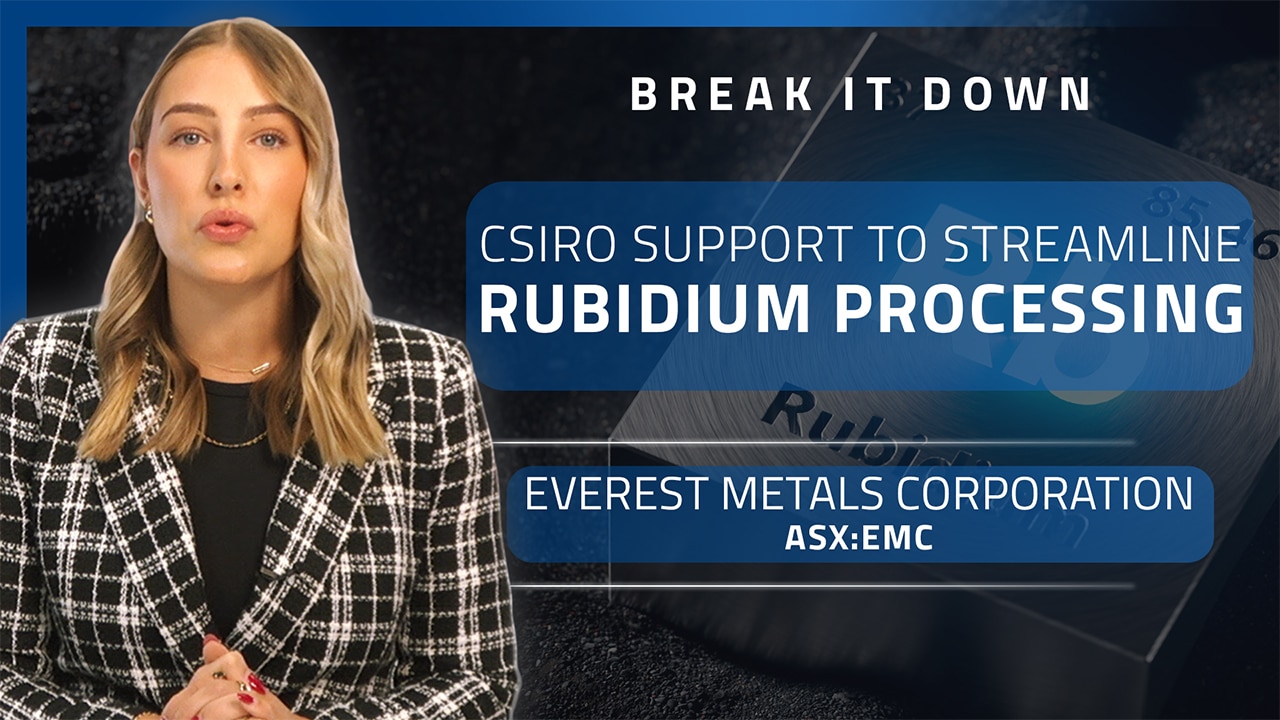Dr Boreham’s Crucible: The Aussie drug company giving thanks for US health sector mayhem
Donald Trump and RFK have caused mayhem in the US medical research market. It’s clearing a path for Aussie drug trial contractor IDT.

Stockhead
Don't miss out on the headlines from Stockhead. Followed categories will be added to My News.
Veteran drug contract manufacturer IDT Australia (ASX:IDT) can thank Donald Trump and Robert F Kennedy Junior’s shambolic approach to reforming US healthcare that shuns usual scientific rigour and has crimped medical research funding.
Why? The mayhem has prompted growing interest in carrying out drug trials in Australia.
“We are seeing more US companies wanting to manufacture their product in Australia and wanting to do their first-in-human trials here,” says IDT chief Paul McDonald.
“I think that trend is going to increase in the next two years.”
McDonald points to Australia’s clinical expertise in running trials, while the sagging Australian dollar lowers already competitive costs.
Here, trials are easier to initiate because the approval process is in the hands of clinical investigators and ethics committees, rather than the Therapeutic Goods Administration (TGA).
And did we mention the generous Federal Research and Development Tax Incentive?
“It is an engaging and welcoming space,” McDonald says.
Helping clinical trials
IDT is intimately linked to clinical trial activity, doing everything from sourcing or making the active pharmaceutical ingredients (APIs) to providing study-ready drugs, including placebos.
“We will do everything clients need, ready to get to the clinic,” McDonald says. “That’s an end-to-end service that’s rare in Australia.”
McDonald says client companies tend to have a pipeline of drug candidates, while phase I trial involvement usually leads to engagement in the later stanzas.
“Once you have done the first one well, you will get follow-on contracts.”
Winning new clients is also vital but an arduous process, with a typical 12-month time lag between ‘meet and greet’ and having a project up-and-running.
“Now, we are seeing a lot more companies finding us directly than we have in the four years I have been here,” McDonald says.
If the company’s strategy holds true, the clinical research activity is an entrée into ongoing commercial drug production.
Happy 50th birthday, IDT
IDT is an Aussie life sciences curio, having been around since 1975 - yep, you read it correctly - and listed since 1998.
IDT - as in Institute of Drug Technology - was founded in Gough Whitlam’s swansong year as a Victorian College of Pharmacy offshoot.
Under the renowned Dr Graeme Blackman, the company became private before listing.
In the 1990s, IDT moved to cytotoxic oncologic drugs before generic versions took over and much of the production moved to China.
In 2014, IDT itself entered the US generics game, paying US$18 million for a package of 23 drugs.
As with Mayne Pharma, the company found the generics game too hard and in 2018 it divested this business.
During the pandemic in 2021, the Federal Government earmarked IDT’s Boronia facility to host the first local production facility for messenger ribonucleic acid (mRNA) vaccines.
The facility was accorded ‘readiness’ status, but the populace lost interest in the plague and a deal never eventuated.
McDonald joined IDT four years ago, having spent most of his career at Pfizer. He became CEO two and a half years ago.
IDT owns its 12,000 square metre digs at Boronia, in eastern Melbourne, which hosts the country’s only ‘vertically integrated’ aseptic plant. Aseptic plants require totally sterile vials, stoppers and other equipment.
Seeking new directions
The Covid vaccine setback spurred management to do some soul searching, resulting in IDT turning to targeting the emerging fields of mRNA, antibody-drug-conjugates (ADCs), medical marijuana and psychedelic treatments for mental disorders.
The company is in the third year of its five-year strategy, spurred by a board “refresh” in September 2022.
McDonald says the plan involved the company doing what it already had been doing - albeit on a larger scale.
“The wildly different leg of it was pursuing megatrends and building capability around it.”
These “megatrends” include the ADCs and mRNA technologies.
IDT’s legacy business, active pharmaceutical ingredients, remains its mainstay - albeit with a new emphasis on neurological disorders.
But the ‘advanced therapeutics’ arm - including personalized cancer treatments - will provide the growth grunt.
ADCs are “super-hot”
McDonald describes ADCs as a “super-hot area”, especially in oncology, with around 150 clinical trials taking place.
“Four years ago, there might have been 20, so it is rapidly advancing.”
ADCs involve attaching a highly potent “warhead” to a modified antibody, to release the payload once it is bound to a tumor cell (via an overexpressed receptor on the tumor).
In other words: it is targeted.
“The tech has been around for about 25 years, but earlier versions went into the bloodstream so didn’t have the specificity,” McDonald says.
“Now, the binding mechanisms and the engineering to hold the cargo on board and release it intra-cellularly has improved dramatically.”
While IDT cannot make the actual antibody, it can synthesize the ‘linkers’ and the payload and fill-and-finish the final product as an injectable.
IDT’s key advantage is logistics: the material needs to be stored at ultra-low temperatures, so the less it travels the better.
mRNA is in IDT’s genes
Last year, IDT struck a deal with Sanofi Australia to advance its phase I mRNA vaccine clinical trials.
Announced in April, the initial tie up was worth $2.5 to $3 million but a follow-on contract in August added $2.5 to $4 million.
“We are doing a lot of the downstream processing for them: the manufacturing including sterile fill-finish,” McDonald says.
“We have also manufactured a number of human vaccines for them.”
Medical marijuana proves a pot pourri
IDT tapped into the medical marijuana boom, but was tripped up by a market oversupply resulting from a TGA mandate effective from July 2023.
The agency required that medical pot be produced under the same standards governing other drugs under its purview - which is fair enough.
The trouble is, during an amnesty period, suppliers saturated the market with product, driving down prices.
This includes offshore suppliers - which shows that judicious tariffs can be handy at times.
“The whole industry dumped product into the market,” McDonald says.
“It became a race to the bottom. There was an oversupply of stock and standards weren’t really being met.”
Because the stuff has an approximate two-year shelf life, the oversupply is starting to unwind and market equilibrium is being restored.
“Possible in the next 12 months it will light up nice and green,” McDonald says.
That said, medical marijuana is “not quite the priority business it was” for the company.
Finances and performance
IDT reported an 87.7% revenue surge for the six months to December 31, 2024, to $10.2 million. The net loss declined 15.8% to $3.25 million.
The bolstered revenue reflected the progress of the advanced therapeutics arm, which upped sales to $3.9 million, from $323,000 previously.
Spare the calculators - that’s a 1116% increase.
API revenue fell 64% to $1 million, reflecting the timing of orders.
Specialty orals revenue fell 7% to $2 million, partly reflecting IDT’s refocus to advanced therapeutics.
But the division will remain a key revenue contributor, because IDT is one of the few providers in the region able to make product that complies with Good Manufacturing Practice standards.
In July last year, IDT raised $7 million via a rights issue, at 9.0 cents apiece. A year earlier, IDT raised $5 million in a placement at 6.5 cents a share.
The company notes $4 million of contract wins not yet recorded as revenue, which bodes well for the current half.
In January, IDT took out a $20 million asset-based debt facility with Scottish Pacific, which has a minimum $10 million drawdown.
This replaces a National Australia Bank facility, which was paid out to the tune of $4.7 million.
The upshot is that IDT has available debt of $13.8 million, which makes its modest $1.1 million of cash look not so bad.
Over the last 12 months IDT shares have ranged between eight cents (early April 2024) and 14 cents (mid-July 2024). They peaked at $4.74 in June 2001.
Winning work
Currently, two medical marijuana clients contribute more than $5 million in revenue, and two more are about to attain this level (in the neurological and mRNA sectors).
“A number of smaller clients are doing $1 million to $2 million, which quickly adds up to $25 to $30 million over the next two years,” McDonald says.
Last week, the company has won a $3.2 million contract to make an investigational treatment for retinitis pigmentosa (RP), for the local Nacuity Pharmaceuticals.
Nacuity received US Food and Drug Administration fast-track designation for RP, a progressive degenerative eye disease with no standard treatment leading to vision loss.
The initial work is expected to be completed by June 2026, but there’s scope for more work over the five-year agreement term.
The win is handy for IDT, which can recommission a 4000-litre facility to make the active ingredients required for such drugs.
“The recommissioned plant also gives IDT a strategic advantage for addressing potential drug shortages,” the company says.
The shares vaulted 16% on the news, which wasn’t bad given Donald Trump had just flagged a tariff on pharmaceuticals.
Dr Boreham’s diagnosis
On the ‘hard’ measure of net asset backing, IDT is chronically undervalued.
In essence, the Boronia property and buildings are valued at around $25 million, while the replacement value of the unique plant is put at $88 million.
So, let’s say $100 million, allowing for debt compared to IDT’s market cap of around $50 million.
Revealed during last June’s capital raising, a mob called Myndbio lobbed a 15 cent-per-share indicative offer. While the offer went nowhere, it’s still evidence that IDT shares are below par.
A key issue is that while IDT’s revenue has had a nice leg-up, profitability has been patchier than grandma’s crocheted quilt.
McDonald says sustainable profits depend on increasing utilization of the largely fixed-cost Boronia plant, which has improved to around 30-40%.
“Once we hit the 50-60% level, we will not just be profitable, but sustainably so,” he says.
McDonald says if the robust revenue trends continue, “we may even run out of capacity”.
Lumpy profitability aside, IDT should post an underlying profit in the 2025-’26 year and become break-even this year on a quarterly basis.
With the business purring, there’s real hope that management finally can close the valuation gap.
If not, expect another bidder to come a knockin’ – but not necessarily at a favorable price.
At a glance
ASX Code: IDT
Share price: 10.5 cents
Shares on issue: 429,677,870
Market cap: $45.1 million
Chief executive officer: Paul McDonald
Board: Mark Simari (chair), Geoff Sam, Dr Jane Ryan
Financials (half year to December 31, 2024): revenue $10.2 million (up 78%), net loss after tax $3.25 million (previously a $3.9 million deficit), cash of $1.1 million (down 75%), available debt $13.8 million
Major identifiable shareholders: Sandon Capital 18%, Regal Funds Management 13%
Disclosure: Dr Boreham is not a qualified medical practitioner and does not possess a doctorate of any sort. He feels his worth is chronically undervalued – not that anyone will listen.
This content originally appeared on Biotech Daily.
Originally published as Dr Boreham’s Crucible: The Aussie drug company giving thanks for US health sector mayhem


